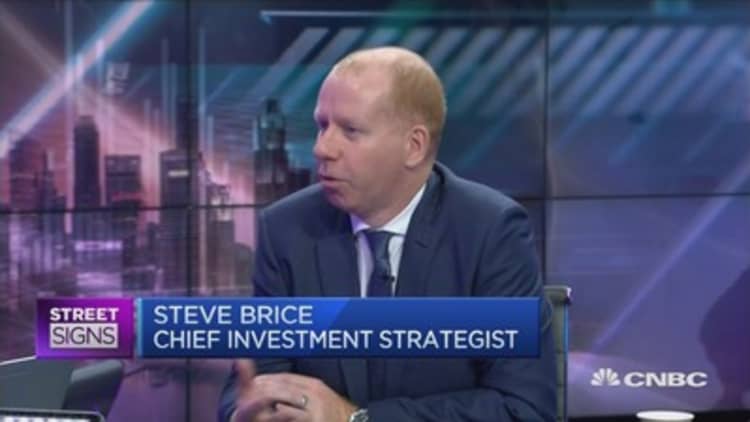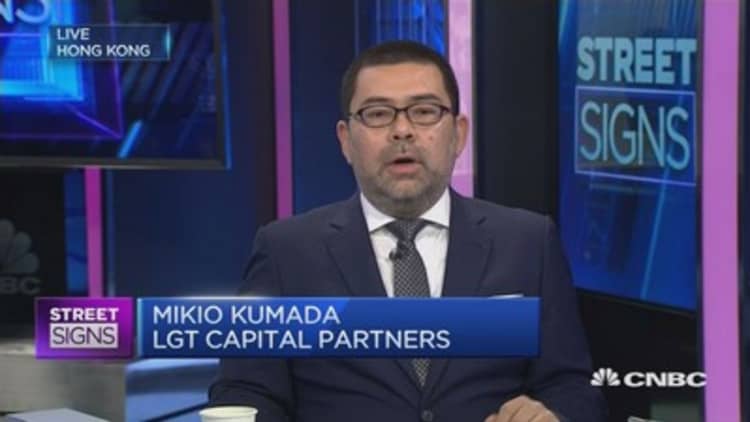Markets in Asia closed mixed after trading sideways on Friday following news that China's banking regulator had questions for banks related to loans for overseas asset purchases and as oil prices advanced off 10-month lows.
Japan's Nikkei 225 rose 0.11 percent or 22.16 points to close at 20,132.67 and South Korea's benchmark Kospi index gained 0.35 percent or 8.23 points to end at 2,378.6.
The S&P/ASX 200 edged higher by 0.17 percent, buoyed by gains in its health care and materials sub-indexes. Australian financials were under pressure, with the sub-index edging lower by 0.37 percent.
Hong Kong's inched higher by 0.05 percent. On the mainland, the added 0.32 percent or 9.9756 points to finish at 3,157.4288 and the Shenzhen Composite was closed 0.456 percent or 8.4978 points up at 1,871.3369.
Oil prices made moderate gains after falling to 10-month lows on Wednesday, but concerns remained over the global oversupply in markets. Brent crude advanced 0.2 percent to trade at $45.31 a barrel and U.S. crude rose 0.26 percent to trade at $42.85.
Investors kept an eye on developments in mainland Chinese markets after the Shenzhen exchange tumbled 1.29 percent overnight. Media reports said that regulators had asked banks to review their exposure to Chinese firms involved in large acquisitions over the last few years.
Shares of Fosun International rose 1.19 percent in Hong Kong. Wanda Film, a unit of the Dalian Wanda Group, added 3.6 percent after resuming trade on the Shenzhen exchange today. The company's shares were suspended from trade on Thursday after falling by 10 percent.

The move comes days after MSCI announced it would include 222 mainland Chinese stocks to its benchmark emerging markets index. While the move was cheered by some investors, others said more work needed to be done by authorities to further open up markets.
"We do see that (the CBRC review) necessarily as a political event because of the Communist Party Congress coming, but part of a larger effort to control leverage and to bring more order and transparency into the system," LGT Capital Partners Mikio Kumada told CNBC.
China, however, could risk overdoing tightening in the short term, Kumada said, adding that this could lead to disruptions in the stock market.

The reaction from markets to the CBRC's move has been overblown even though sentiment was affected, said Hao Hong, managing director of BOCOM International. He added that MSCI inclusion is unlikely to be affected, given how there was a one-year preparation period.
Over in Australia, banking stocks traded mostly lower after the South Australia government announced a new tax on ANZ, Commonwealth Bank, Westpac, National Australia Bank and Macquarie. The move comes after the federal government announced a levy on the country's largest banks last month.
Shares of ANZ closed down by 0.57 percent and NAB fell 0.51 percent. Westpac gave up earlier gains to close 0.03 percent lower.
The dollar index, which tracks the dollar against a basket of rival currencies, traded at 97.372. Against the yen, the greenback traded at 111.32 at 3:35 p.m. HK/SIN, above levels around 111.27 seen in the previous session.
Meanwhile, the Australian dollar strengthened to trade at $0.7574 after edging lower for four straight sessions.
On the economic calendar for Friday, Taiwan retail sales for the month of May are due at 4:00 p.m. India will release current account data for the first quarter at 8:00 p.m.
Stocks on Wall Street closed mixed, with the Dow Jones industrial average edging down by 0.06 percent or 12.74 points to close at 21,397.29.

